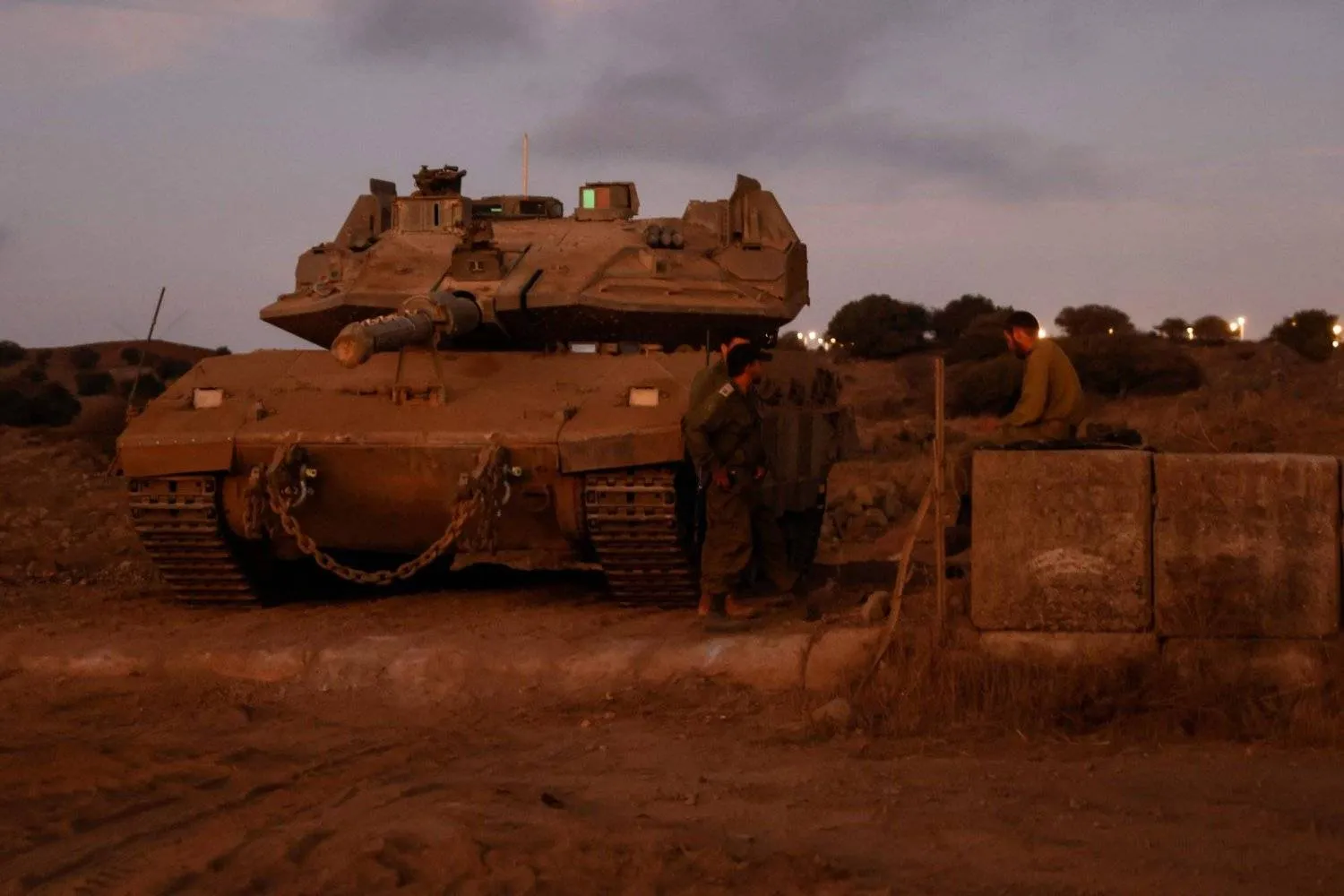Israeli forces have removed landmines and set up new barriers along the occupied Golan Heights border near Syria, signaling a possible expansion of ground operations against Hezbollah, security sources and analysts told Reuters.
At the same time, Israel is strengthening its defenses.
The sources suggest this move could allow Israel to target Hezbollah positions further east on the Lebanese border while creating a buffer zone for better military surveillance and to prevent infiltration.
Reports have mentioned Israel clearing landmines, but sources shared additional details, saying Israel is moving the security fence closer to the Syrian side and digging more fortifications.
These sources include a Syrian soldier, a Lebanese security official, and a UN peacekeeping officer.
Any military strikes from the Israeli-occupied Golan or the demilitarized zone could escalate the conflict between Israel, Hezbollah, and its ally Hamas. The fighting has already drawn in Iran and risks involving the United States.
Israel and Hezbollah have been exchanging fire since the group began launching rockets from Lebanon in support of Hamas, following the group’s attack on southern Israel last year, which sparked the Gaza war.
Along with airstrikes that hit Hezbollah hard last month, the group is also facing Israeli ground attacks from the south and bombardments from the Mediterranean.
Expanding operations eastward could help Israel cut off Hezbollah’s weapon supply routes, some of which pass through Syria and Iran, its key backers.
Nawar Shaban, a researcher at the Istanbul-based Harmoon Center, said Israel’s operations in the Golan Heights seem to be preparations for a broader attack in Lebanon.
Everything happening in Syria is aimed at supporting Israel’s strategy in Lebanon—disrupting Hezbollah’s supply routes, depots, and key individuals, according to Shaban.
A Syrian intelligence officer, a soldier in southern Syria, and three senior Lebanese security sources told Reuters that Israel’s mine-clearing and other engineering efforts have sped up in recent weeks.









